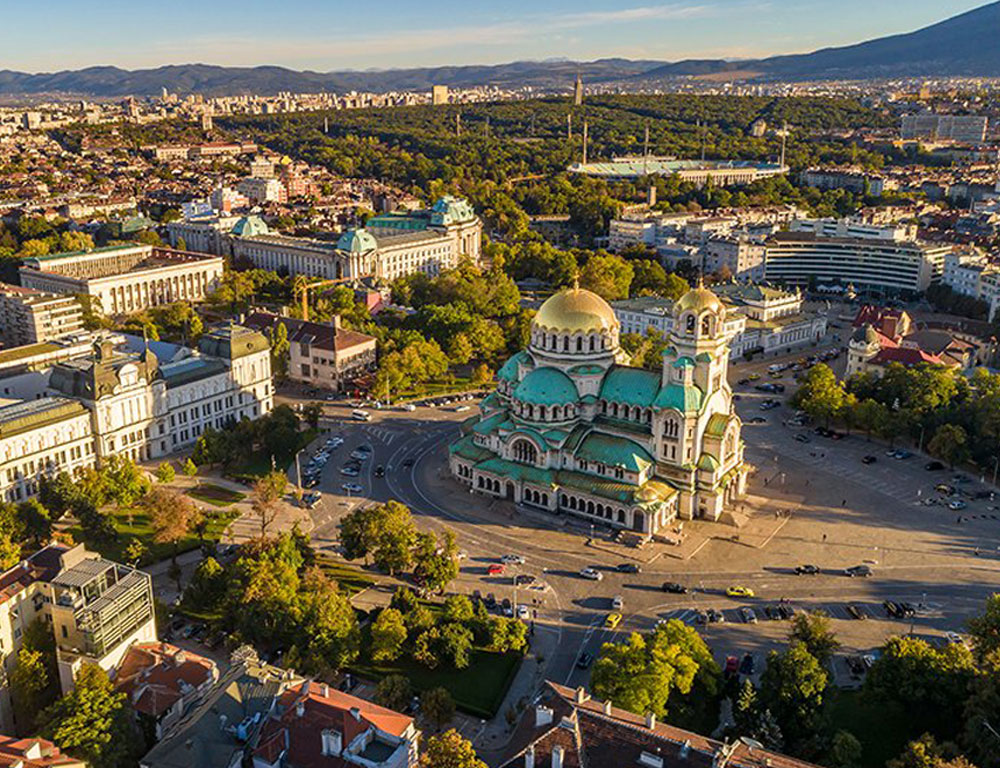
Many countries in Europe and Central Asia face rapid demographic change: people have fewer children and live longer, and many leave their countries to look for opportunities elsewhere. Societies are growing older and, in many cases, are getting smaller, especially in Eastern Europe where low fertility rates are compounded by high levels of outward migration.
The hybrid online/in-person Ministerial Conference on Demographic Resilience aims to contribute to strengthening the capacity of countries in Europe and Central Asia to respond to the profound demographic shifts the region is experiencing.
The conference is about identifying ways to mitigate challenges related to demographic change – and making the most of the opportunities that come with it, based on evidence and human rights.
- Alanna Armitage, Director, UNFPA Eastern Europe & Central Asia
The conference, which runs from 1-2 December, will convene ministers and other high-level representatives of governments, civil society, the private sector, academia and the international community. It will kick off a Decade for Demographic Resilience that will mobilize political support for policy responses that are comprehensive, grounded in evidence, and based on human rights. And it will provide a platform for the exchange of experiences and sound policy advice, enabling countries to mitigate negative effects and fully harness the opportunities that come with demographic change.
For more information, please contact:
Ministry of Foreign Affairs of the Republic of Bulgaria:
yangelova@mfa.bg and un@mfa.bg
United Nations Population Fund (UNFPA): eecaro.office@unfpa.org
The Ministerial Conference on Demographic Resilience is about the demographic changes countries in Europe and Central Asia are experiencing and how best to respond to them. Demographic phenomena such as low fertility rates, population ageing or migration are often portrayed as crises in the public discourse. There is no question that some demographic trends can create challenges to countries’ economies, social systems and the sustainability of infrastructure and services. But these challenges can generally be anticipated and mitigated with the right policy mix. And demographic change also always comes with opportunities, for example for more inclusion of women, older people and those on the margins. The conference is about identifying ways to mitigate challenges related to demographic change – and making the most of the opportunities that come with it, based on evidence and human rights.
This is the first time countries from across Europe and Central Asia are coming together at ministerial level under the auspices of the United Nations to discuss the implications of, and responses to, population decrease and demographic change more broadly. Globally, and in Europe and Central Asia, demographic change has been identified as one of the megatrends that affect the achievement of the Sustainable Development Goals – and, more broadly, the future of societies in terms of economy, environment and social development. With countries in the region getting ready to confront a challenging future, this is the right moment to tackle demographic change as a key factor for ensuring prosperity and sustainability.
The Ministerial Conference on Demographic Resilience is organized by UNFPA, the United Nations Population Fund, and the Government of Bulgaria, in cooperation with Population Europe.
The conference is divided into a high-level political segment and discussions on policy solutions and good practice examples. The high-level segment will include participation of current and former Heads of State or Government and Ministers.
The Conference will bring together about 300 representatives of governments, civil society, the private sector, academia and the international community, as well as members of parliaments and other stakeholders.
Due to the ongoing pandemic the conference will be held as a hybrid event, with participants joining in person as well as online.
The conference agenda is organized around seven themes, or dialogues:
- Population ageing
- Revitalization of rural areas
- Fertility
- Gender equality and family policies
- Aspirations of young people
- Financing of social policies
- Democracy & demography
United Nations Member States have been invited to participate in the high-level political segment at ministerial level, and to send delegations to participate in other conference events.
Representatives of civil society, private sector, media, academia and the international community, as well as members of parliaments and other stakeholders interested in participating are encouraged to register.
The goals set for the conference include:
- contributing to shifting the predominant narrative from a focus on demographic crisis to a focus on opportunities and solutions;
- generating high-level political support for a vision that addresses demographic change that is comprehensive, grounded in evidence, and based on human rights;
- identifying key determinants and pathways to enhance demographic resilience and demographic dynamism through policies, programmes, and partnerships and new technologies for countries to fully harness the potential of demographic change and mitigate negative consequences, in support of national and global development goals; and
- launching a Decade of Demographic Resilience 2022-2032 and a Member State-led community of practice on demographic resilience to facilitate sharing of experiences and broker policy advice and technical assistance.
The Sofia Alliance is a policy and practice community launched at the Ministerial Conference on “Shaping Europe’s Demographic Future” in Sofia on 1-2 December 2021 with the purpose of supporting countries in Europe and Central Asia in strengthening demographic resilience. READ MORE
The Decade of Demographic Resilience was launched at the Ministerial Conference on “Shaping Europe’s Demographic Future” in Sofia on 1-2 December 2021 to galvanize action for enabling countries to thrive in a world of rapid demographic change. READ MORE
The conference is held as a hybrid event, following strict safety and prevention protocols, in line with the COVID-19 entry regulations and COVID-19 restrictions of the Government of the Republic of Bulgaria.
The total number of in-person participants at the venue will be limited to what is allowed for the venue under national regulations for Covid-19. Rapid antigen testing for Covid-19 is mandatory, and must be repeated every 48 hours (even when last test result negative), for all in-person participants and available free of charge onsite. Participants are required to wear protective face masks and comply with physical distancing rules.